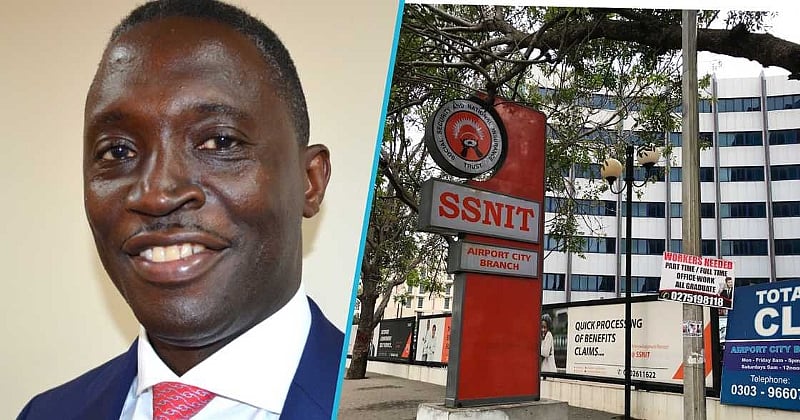The Social Security and National Insurance Trust (SSNIT), Ghana’s public pension fund, has undergone a significant leadership shake-up as part of the new administration’s restructuring efforts. President John Dramani Mahama revoked the appointment of Director-General Kofi Bosompem Osafo-Maafo, along with his three deputies: Kwame Adu-Darkwa (Finance and Administration), Juliana Kpedekpo (Operations and Benefits), and Nana Serwah Bonsu Amoako (Investment and Development). This move marks a reversal of previous appointments made by the preceding administration led by President Nana Addo Dankwa Akufo-Addo, who had installed Mr. Osafo-Maafo and overseen several other leadership changes within the organization just a few months prior, in April 2024. The revolving door of leadership underscores a period of instability and controversy surrounding SSNIT’s management and investment strategies.
The recent leadership changes follow a period of intense public scrutiny and pressure on SSNIT, particularly regarding a proposed divestment of 60% of its stake in four hotels. This decision sparked widespread opposition from Organized Labour, who viewed the move as potentially detrimental to the long-term financial health of the pension fund and the interests of its contributors. The labor unions threatened a nationwide strike, demanding the immediate cancellation of the hotel sale. Bowing to this pressure, SSNIT’s Board of Trustees ultimately terminated the divestment process, issuing a public statement reaffirming their commitment to prudent management and the sustainability of the pension scheme. The controversy highlighted underlying tensions regarding SSNIT’s investment strategy and its accountability to stakeholders.
The brief tenure of the outgoing leadership team appears to be directly linked to the fallout from the controversial hotel divestment plan. While the specific reasons for the revocations haven’t been explicitly stated by the Mahama administration, the timing suggests a direct correlation with the public outcry and Organized Labour’s strong opposition. The administration’s swift action signals a commitment to addressing public concerns and restoring confidence in SSNIT’s management. The restructuring efforts aim to stabilize the organization and ensure the long-term security of Ghana’s pension system.
The frequent changes in leadership at SSNIT raise concerns about continuity and strategic direction. The rapid turnover of key personnel can disrupt ongoing projects, create uncertainty within the organization, and potentially impact the effectiveness of its operations. Furthermore, the public controversies surrounding investment decisions underscore the need for greater transparency and stakeholder engagement in SSNIT’s decision-making processes. Building trust and ensuring the long-term stability of the pension fund will require a clear and consistent strategy that prioritizes the interests of contributors and pensioners.
The Mahama administration now faces the challenge of appointing a new leadership team capable of navigating the complex issues facing SSNIT. Finding individuals with the necessary expertise and experience to manage the fund’s investments effectively and maintain the confidence of stakeholders will be crucial. The new leadership will need to address the concerns raised by Organized Labour and other stakeholders, ensuring transparency and accountability in all future investment decisions. Furthermore, they must develop a long-term strategy that balances the need for financial returns with the social responsibility of safeguarding the retirement security of Ghanaian workers.
Looking ahead, SSNIT’s stability and effectiveness will depend on the new leadership’s ability to navigate the political landscape, engage with stakeholders, and make sound investment decisions that prioritize the long-term health of the pension fund. The controversy surrounding the hotel divestment serves as a valuable lesson in the importance of transparency and stakeholder engagement in managing public funds. The incoming leadership must learn from these past experiences and work to build a more robust and resilient pension system that can provide secure retirements for generations to come. The future of SSNIT hinges on its ability to regain public trust and demonstrate a commitment to prudent and transparent management.














